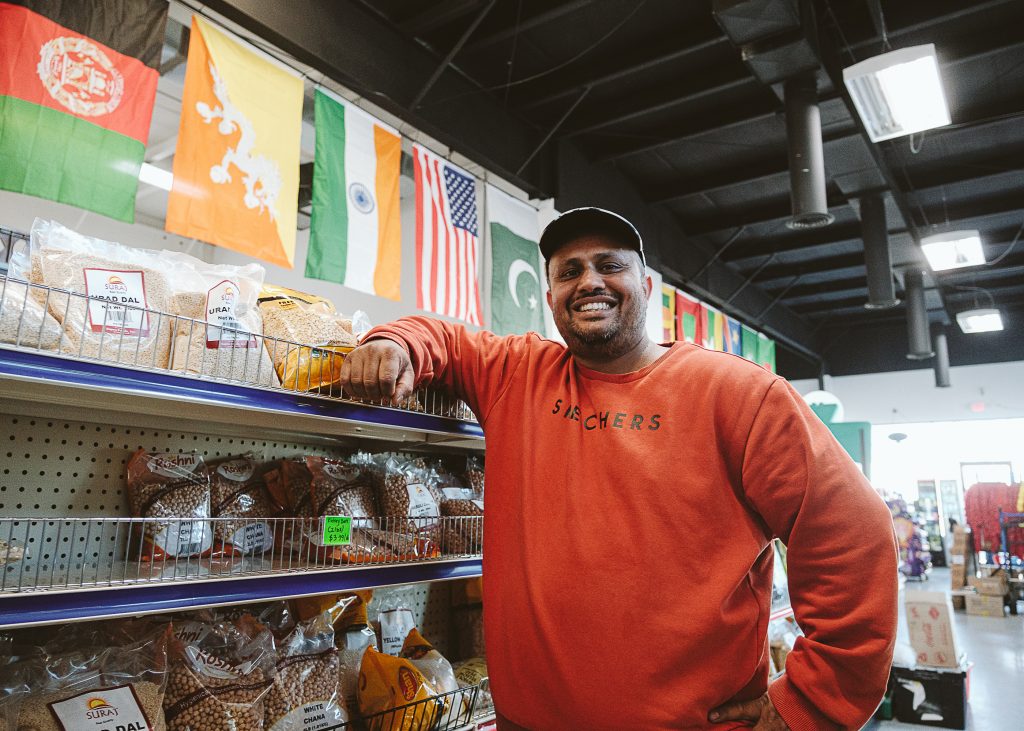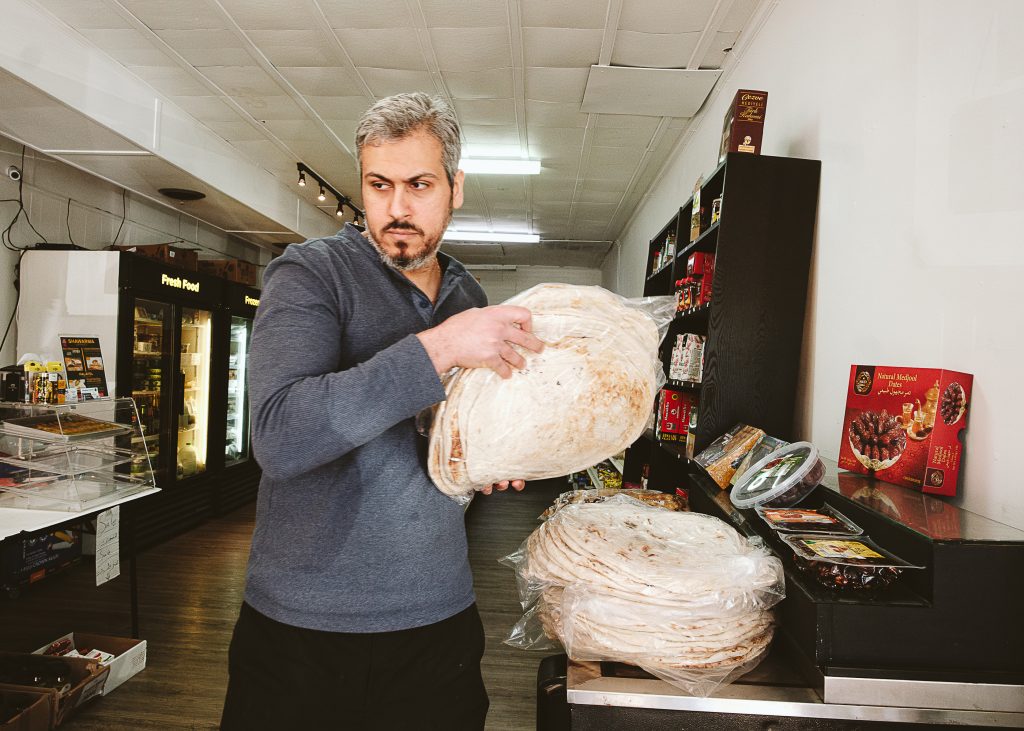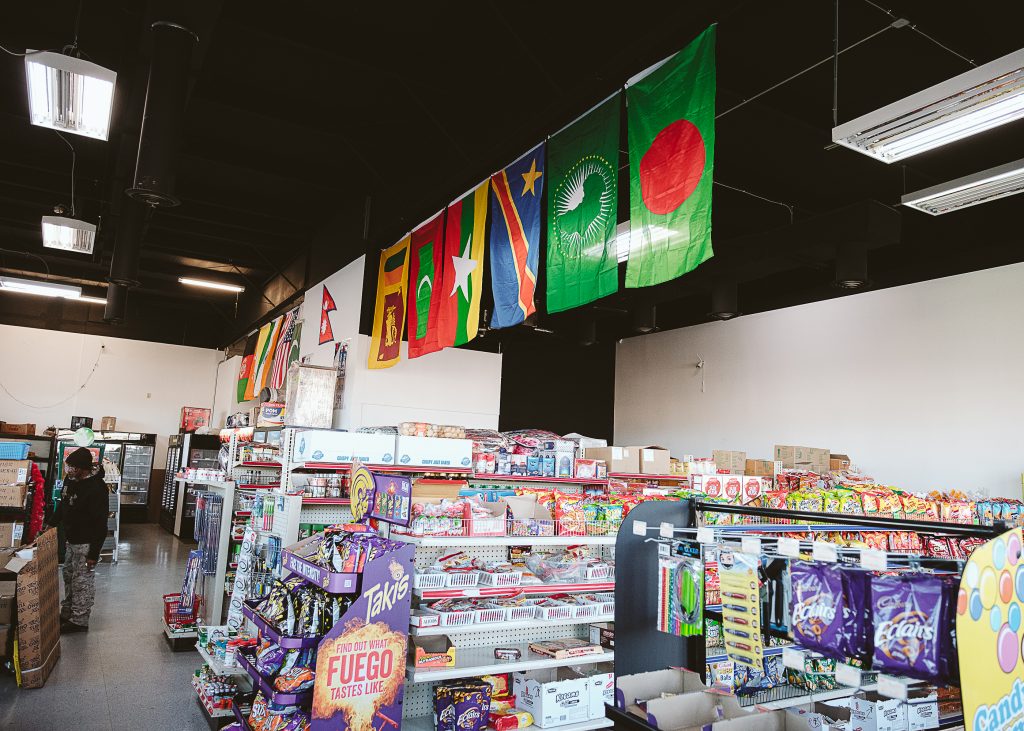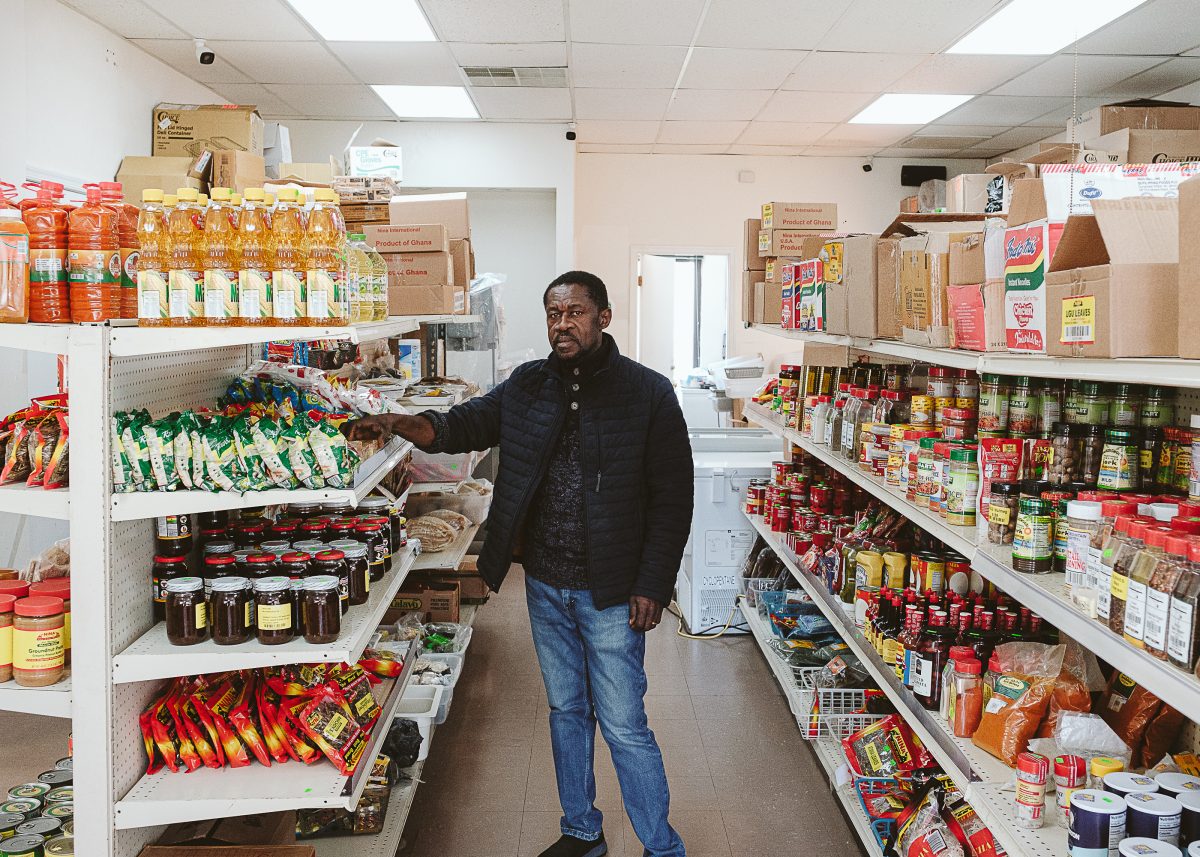Charlottesville is well known as a foodie destination—not only because of its vibrant restaurant scene, but because of the well-loved gourmet groceries that make cooking at home (across myriad cultures and cuisines) easy and interesting. Put these family-owned international grocers—with ingredients from Africa, India, China, and beyond—on your must-visit list, and let the owners transport your plate and stretch your palate.
When Fred and Fatima moved to Charlottesville, none of the grocery stores had what they were looking for. Originally from Ghana, the couple couldn’t find any of the ingredients they needed to make the authentic, West African cuisine that tasted like home.
Their only option was packing up the car and road-tripping hours away to Washington, D.C., Baltimore, and sometimes even New York to stock up on goods from African markets. With young kids, the drive got old fast.
“We were tired of traveling two and a half, four hours, sometimes more to get our produce and food,” says Fatima. “We had to take our kids and we were just tired of doing that. Looking around this community, we wanted to bring things—to bring a bit of us to the community.”

In 2012, the couple opened African Market Place—their way of bringing home to Charlottesville. Housed in a small end-cap space on Commonwealth Drive, the shop’s shelves are full of fresh flavors, produce, and foods from all across Africa.
One of Market Place’s largest sections is dedicated to grains. According to Fatima, African breads are a must-try.
“They’re different, not as much sugar or preservatives,” she says. “Better.”
Beginners can start with a loaf of agege bread, a dense white bread from Nigeria, or a bag of Effie’s International pull-off rolls, made by an authentic African bakery in Alexandria. If you’re interested in getting your hands dirty and kneading your own dough, there are plenty of flour options to choose from.
Maskal teff flour can be used to make injera, a spongy Ethiopian flatbread, and there’s an entire shelf dedicated to varieties of fufu flour.
One of West Africa’s best-known dishes, fufu is a pounded, starchy side dish that can be made with cassava, plantain, cocoyam, and more. It pairs well with flavorful meats or soups.
If you’re new to African cuisine, or any international cuisine, shopping for it for the first time can be overwhelming. Soup is a great place to start.

“When it’s cold, we Africans like soup,” says Fatima. “We can have palm soup, peanut soup, soup with cassava leaves. There’s a lot of different soups, it depends.”
Just come in with a general idea of what you want, and Fatima can help you round out your list. Stock up on the essentials, like palm oil (“We use it for everything,” she says.), herbs, spices, and Nina Groundnut Paste (African peanut butter, “No additives, it’s better.”), then pick your meats and veggies. There’s smoked dried fish, flavorful bone-in meats (“It has hard bones, it doesn’t fall apart in soup.”), jumbo snails (“Steam them first.”), massive African yams, and fresh cassava. It’s hearty, starchy, and, in the words of Fatima, “different. It’s better.”
On the way out, grab a bag of plantain chips or a box of McVitie’s Digestives for the road, and make sure to snag a bar or two of African black soap. It’s just better.
Is there anything more satisfying than a simmering bowl of homemade curry or masala?
We don’t think so. And Express Grocery Store probably has all the authentic ingredients you need to make a delicious meal inspired by your choice of South Asian cuisine.
The family-owned shop has been around for a while, but its current owner, Prashanna Sangroula, took over two years ago. Despite running a new business in the middle of the pandemic, Sangroula has been slowly working on expanding the shop’s offerings with the help of family member and longtime business partner Utsav Gautam.
“When we moved here there wasn’t really a store like it,” says Gautam. “We drove to northern Virginia to get our supplies.”
To save others from making the trek north, Express regularly gets shipments of fresh produce, and frequently rotates its stock to keep things novel for customers, who can find items from India, Nepal, Pakistan, and more.
If you have a hankering for curry, make sure to buy dal, rice, spices, paratha (an Indian flatbread), and your choice of meat—chicken, bone-in lamb, or goat, when it’s in stock. There are also plenty of authentic paneers if you want to go vegetarian, and seasonal veggies like pumpkin leaf, bathua saag, tori ko saag, and rukh tamatar.

If it’s a frozen dinner kind of night, Express has you covered. Gautam keeps multiple freezers full of every kind of samosa imaginable, plus mattar paneer, chicken tikka masala, and pakoras.
Finish up your shopping with something to sip on and a sweet treat. Express stocks a nice selection of wines and Indian beers, including Taj Mahal, Flying Horse, and Haywards 5000, and has an impressive dessert selection. Sate your sweet tooth with some mango or falooda ice cream, chikki peanut brittle, punjabi cookies, or chocolate burfees.
The sweets—and the snacks—are favorites of UVA students, who get free delivery within a five-mile radius.
Gautam recommends the Kurkure chips, which come in flavors like masala munch, chilli chatka, and naughty tomato, and Maggi instant noodles, Express’ best-selling item.
Depending on the time of year, you might also find seasonal goods. In October, you can find everything you need for a Diwali celebration, including diyas, incense, and makhamali mala.
Milestone achievement
C’ville Oriental celebrates 30 years
In 1994, Xiaonan Wang and Hui Qiao moved to Charlottesville from California.
In California, the Asian community makes up more than 15 percent of the population, and Asian grocery stores are abundant. In Charlottesville in the ’90s—not so much.
“We realized we couldn’t find any Asian grocery stores,” says Qiao. “Coming from California, that was so inconvenient to the Asian community especially. We had to go to Richmond or D.C. to get our items.”
Wang and Qiao would drive far away to get basic items like vinegar and soy sauce. It’s an unfair experience that’s all too familiar for people of international cultures who move to C’ville. Qiao and Wang immediately started thinking of opening their own store.
“I just thought that this is a must,” says Qiao.
That same year they opened C’ville Oriental. Qiao had just started a job at UVA, so Wang took on the day-to-day operations.
“We started in a much smaller space and we just kept expanding and moved three times until our current location at Seminole Trail,” says Qiao. “This is our biggest space so far, and we like the location because of the parking and the space inside.”
The inside is a treasure trove of goods from Hong Kong, Taiwan, Korea, Japan, Thailand, India, and more. It’s easy to get lost in the aisles of savory sauces, sweet snacks, and fresh produce.
“[Customers] really like our fresh vegetables,” says Qiao. “We have about 20 different kinds of greens. It’s healthy, easy to cook, and cheap.”
Bok Choy, taro, and bean sprouts are a few of the veggies you’ll find, alongside plenty of meat and tofu options, and fun snacks like Pocky and mochi. Every week, Wang makes the drive to D.C. to pick up items a supplier can’t ship to Charlottesville.
“Originally, the store was for the Asian community, but now we have more and more Americans come in,” says Qiao. “Because of the University town, a lot of people have exposure to international cultures. They want to learn how to eat and cook.”
This year marks 30 years in business. Qiao, who recently retired from her UVA position, is now helping out more and more at the shop, which is open 365 days a year.
Qiao and Wang know first-hand how hard it can be to find specialty items, so they want to be there for C’ville residents whenever they need anything, big or small.
“We are very happy that we are able to help the community,” says Qiao. “We feel like we are a part of their life. We don’t have any days off because we feel that’s how important grocery stores are.”
Grand experiment
Mohammed Alazazi is taking his grocery biz one step at a time
Small business owners push hard to keep the gears of entrepreneurship moving and oiled, and Mohammed Alazazi is no exception.
Originally from Iraq, Alazazi doesn’t have a background in the grocery business—encouragement from his culture, wife, sons, and in-laws inspired him to represent and sell the food that feeds them. Hummus Grocery is his first business venture, and he spent a long time debating whether or not to open it.
“My wife supports me so much,” Alazazi says. “Without her, I wouldn’t be able to open this business—or do anything else.”
Alazazi brings most of the inventory from Michigan, where larger Middle Eastern distributors are thriving. He makes the trip—a 10-hour drive one way—once a month.
Hummus Grocery has been open for two years, selling varieties of Middle Eastern beverages, tahinis, spices, dry goods,
frozen items. But the real showstoppers are his fresh hummus (obviously) and tabbouleh, which he plans to eventually expand into a full menu.
“Once I get the proper licenses I want to start selling sandwiches, like shawarma and falafel,” he says.
Considering the cost of commercial sinks and other equipment necessities as well as the time for a kitchen buildout, Alazizi is taking the time to learn about his business in the Charlottesville economy. “I’m going to start step by step,” he says. “I’m giving it my best.”—Christina Martin
